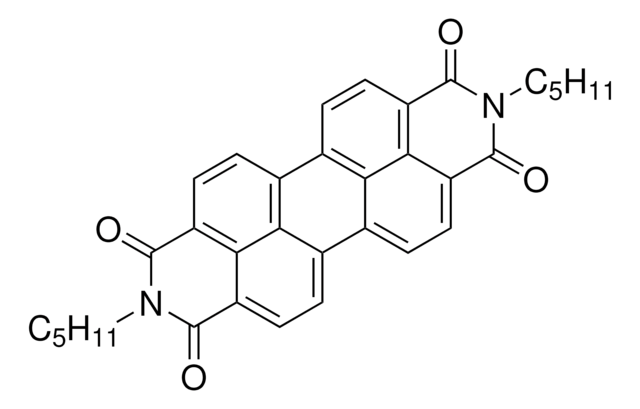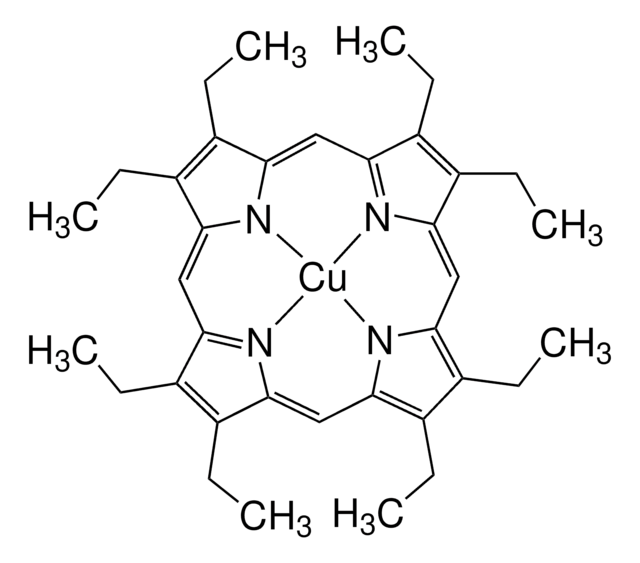264229
N,N′-Bis(2,5-di-tert-butylphenyl)-3,4,9,10-perylenedicarboximide
Dye content 97 %
About This Item
Recommended Products
Assay
97%
form
solid
composition
Dye content, 97%
mp
>300 °C (lit.)
λmax
528 nm
semiconductor properties
N-type (mobility=1.8x10−4 cm2/V·s)
SMILES string
CC(C)(C)c1ccc(c(c1)N2C(=O)c3ccc4c5ccc6C(=O)N(C(=O)c7ccc(c8ccc(C2=O)c3c48)c5c67)c9cc(ccc9C(C)(C)C)C(C)(C)C)C(C)(C)C
InChI
1S/C52H50N2O4/c1-49(2,3)27-13-23-37(51(7,8)9)39(25-27)53-45(55)33-19-15-29-31-17-21-35-44-36(22-18-32(42(31)44)30-16-20-34(46(53)56)43(33)41(29)30)48(58)54(47(35)57)40-26-28(50(4,5)6)14-24-38(40)52(10,11)12/h13-26H,1-12H3
InChI key
BIYPCKKQAHLMHG-UHFFFAOYSA-N
General description
Application
Signal Word
Warning
Hazard Statements
Precautionary Statements
Hazard Classifications
Eye Irrit. 2 - Skin Irrit. 2 - STOT SE 3
Target Organs
Respiratory system
Storage Class Code
11 - Combustible Solids
WGK
WGK 3
Flash Point(F)
Not applicable
Flash Point(C)
Not applicable
Personal Protective Equipment
Choose from one of the most recent versions:
Already Own This Product?
Find documentation for the products that you have recently purchased in the Document Library.
Our team of scientists has experience in all areas of research including Life Science, Material Science, Chemical Synthesis, Chromatography, Analytical and many others.
Contact Technical Service









